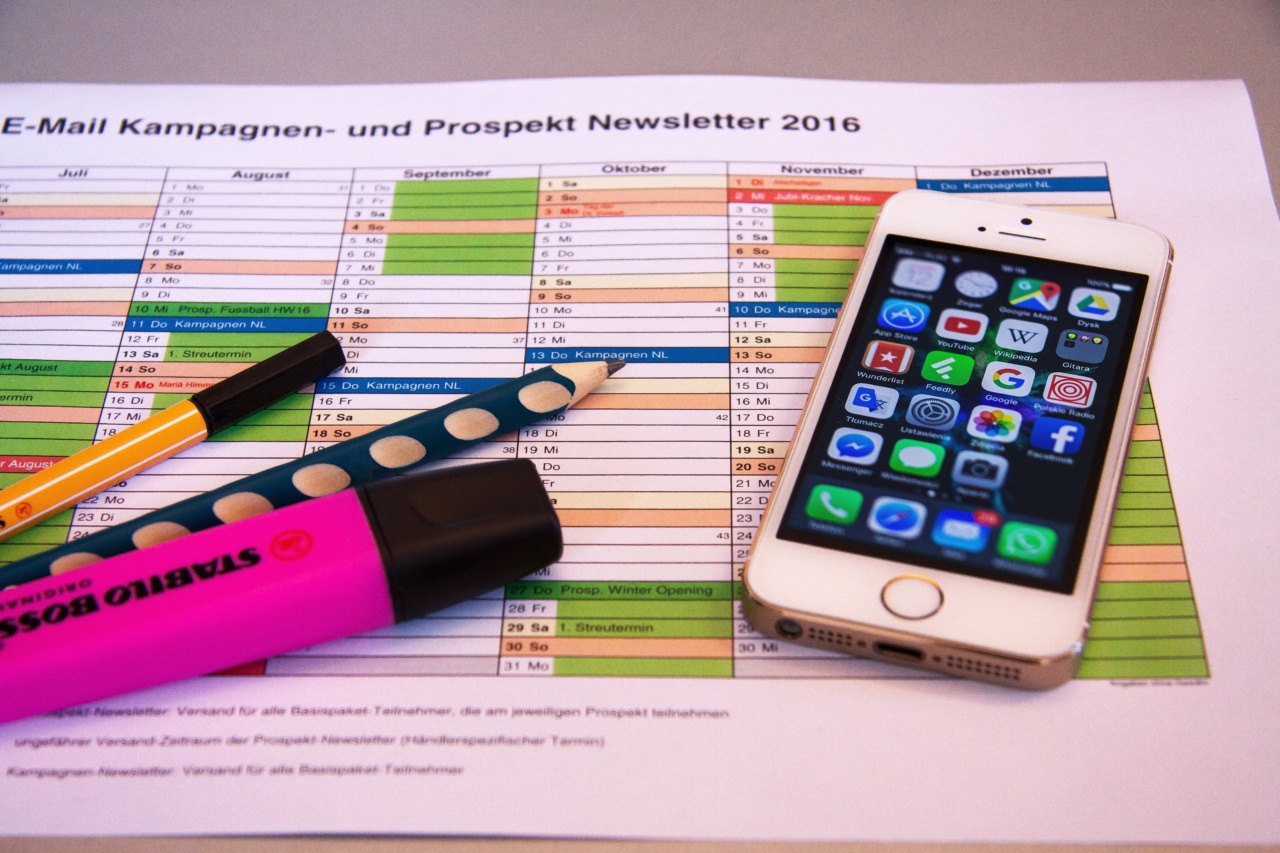In today’s modern world, controlling our eating habits has become more challenging than ever. With easy access to fast food, processed snacks, and sugary beverages, it is no wonder that many people struggle with maintaining a healthy diet.
However, with a few genius tips and tricks, you can regain control over your eating habits and improve your overall well-being. Here are 10 tips to help you on your journey:.
1. Meal Prepping
One of the most effective ways to control your eating habits is by meal prepping. By planning and preparing your meals in advance, you can ensure that you have healthy and nutritious options readily available.
This helps you avoid impulsive and unhealthy food choices when hunger strikes. Dedicate some time each week to plan your meals, create a shopping list, and prepare your meals ahead of time. Store them in portion-controlled containers for easy access throughout the week.
2. Mindful Eating
Mindful eating is the practice of being fully present and aware of your eating experience. It involves paying attention to your body’s hunger and fullness cues, savoring each bite, and eating without distractions.
By practicing mindful eating, you become more attuned to your body’s needs and can better control portion sizes. Slow down, chew your food thoroughly, and savor the flavors. This allows your brain to register satisfaction and prevents overeating.
3. Be Proactive with Snacks
Snacking can easily derail your healthy eating efforts if you choose the wrong options. Instead of mindlessly reaching for a bag of chips or a candy bar, be proactive with your snack choices.
Keep a variety of healthy snacks, such as fruit, nuts, or cut-up veggies, readily available. When hunger strikes between meals, you will be more likely to reach for these nutritious options rather than unhealthy alternatives.
4. Drink Plenty of Water
Staying hydrated is essential for overall health and can also help control your eating habits. Many people mistake thirst for hunger and end up eating when their bodies actually need hydration.
Drink a glass of water before each meal to help curb your appetite. Additionally, aim to drink at least eight glasses of water throughout the day to stay properly hydrated and reduce the likelihood of unnecessary snacking.
5. Create a Routine
Establishing a regular eating routine can be incredibly beneficial for controlling your eating habits. Aim to eat meals around the same time each day and avoid skipping meals.
Having a structured routine helps regulate your hunger and prevents excessive snacking. Try to plan your meals in advance and set aside specific times for eating. This will make it easier to resist temptation and maintain a healthier diet.
6. Practice Portion Control
Portion control is crucial when it comes to managing your eating habits. Be mindful of your portion sizes and avoid going back for seconds. Use smaller plates and bowls to trick your brain into thinking you are consuming more food.
Fill half your plate with vegetables, a quarter with lean protein, and the remaining quarter with whole grains or other healthy carbohydrates. This balanced approach ensures you are getting the nutrients you need while preventing overeating.
7. Limit Processed Foods
Processed foods are loaded with unhealthy ingredients such as added sugars, unhealthy fats, and preservatives. These foods are often addictive and can lead to overeating.
To regain control over your eating habits, limit your consumption of processed foods and opt for whole, nutrient-dense foods instead. Focus on incorporating plenty of fruits, vegetables, lean proteins, whole grains, and healthy fats into your daily diet.
8. Keep a Food Journal
A food journal can be a powerful tool for gaining insight into your eating habits. By recording everything you eat and drink throughout the day, you become more aware of your food choices and any triggers that may lead to overeating.
Take note of portion sizes, emotional states, and any cravings or triggers you experience. This will help you identify patterns and make necessary adjustments to improve your eating habits.
9. Practice Stress Management
Stress can lead to emotional eating and unhealthy food choices. To regain control over your eating habits, find healthy ways to manage stress. Engage in activities such as yoga, meditation, exercise, or hobbies that help reduce stress levels.
Instead of turning to food for comfort, find alternative coping strategies that nourish your body and mind.
10. Seek Support
Changing your eating habits can be challenging, but you don’t have to do it alone. Seek support from friends, family, or a support group to help you stay motivated and accountable.
Surround yourself with people who share your goal of healthy eating and can provide encouragement and guidance when needed.





























